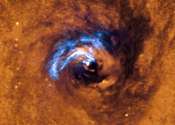Astronomers discover complex organic matter in the universe
In today's issue of the journal Nature, astronomers report that organic compounds of unexpected complexity exist throughout the Universe. The results suggest that complex organic compounds are not the sole domain of life ...









